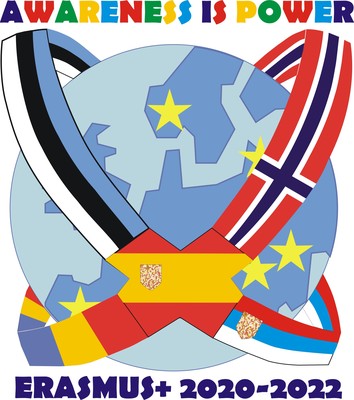
We live in a time where production has grown bigger than consumption, where most of the non-renewable resources have been used up. We must think about our future more than ever, and the best way to do it is to start from children. We cannot wait for our governments to take action and solve environmental problems, but which is more important, the active contribution of individuals in their daily lives matters. It is important that students understand how their lifestyle and choices affect the environment.
The main objectives of the project are raising awareness about the environmental issues in order to change the behaviors and worldview of the students and through them the communities as well. Through getting to know and exploring environmental issues, students come up with possible solutions to ensure the sustainable use of resources. The new knowledge would reach students' families through them, and the circle of conscious members of society would expand even further. Practical experience will lead to deeper knowledge and will lead to more informed decisions and choices in the future. Today's students are entrepreneurs and consumers of the future. Gaining practical experience raises interest in the development of various subjects (mathematics, science, technology).
At the same time teachers face the problem of how to integrate global and environmental education into regular curriculum. Sharing our best practices of teaching and facilitating workshops and lessons will promote the integration of environmental issues into everyday school life. Teaching and learning through practical activities is extremely relevant to the various global issues, through them the participants and teachers can exchange tools and knowledge, experiences and materials, teaching methods both formal and non-formal.
Planned activities will ensure that participants become learners with different knowledge, interests and skills, and develop competencies that will create the capacity to effectively operate in their chosen field or area of activity (entrepreneurial, digital, communication and social).
This project is aimed for the whole school and students families and through that can impact the whole community of all the partners. There will be several events where the whole school can participate no matter the age. Each country will also host one project week at their school where four students and two teachers from each school can go. The reason behind the variety of participating countries is that sustainable development is a topical issue in all those countries. Some problems we have in common, like recycling percentage is currently one of the lowest in Romania, Spain, Serbia and Estonia. At the same time, it is possible to see good solutions that save the environment, such as the circular economy. For instance, Norwegian industrial companies are world leaders in environmental and climate friendly operating principles. In Estonia, for example, the Food Bank has been well established. We aim to strengthen and broaden the partnership between participating schools at European level.
Each partner country will host one project meeting which will last 5 days and will be their responsibility to organize. Each meeting will contain presenting the homework regarding the topic of that meeting and on spot it will be presented and workshops will be implemented by each partner school's teachers and students. Homework will be done beforehand at home together with other teachers and students. The host school's teachers will facilitate and partners will visit 2 regular school lessons, which are connected to the topic. We are planning to have visits to interesting places to know some local pollution issues. On the last day we will have a meeting of the coordinators, reflection, and evaluation of the first project meeting.
The impact on students, teachers, and community will be extensive. Students and teachers will develop practical skills, enlarge their competence in interdisciplinary work and teaching methods. Our communities will lead a more sustainable way of life and set examples to others. It is also expected to improve knowledge of foreign languages and promote the EU's broad diversity and intercultural awareness. This activity will broaden the horizons for a more creative and open school with more experiential learning that departs from the traditional way of teaching where students are passive recipients of knowledge. The good practices learned by the participants will be adopted and the role of the school upgraded.